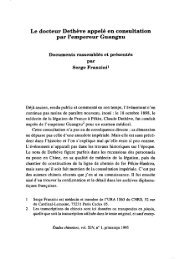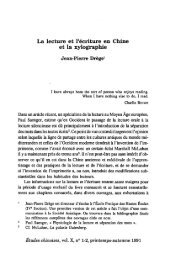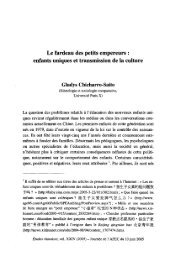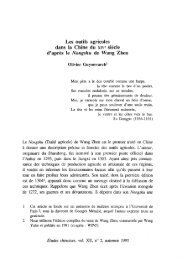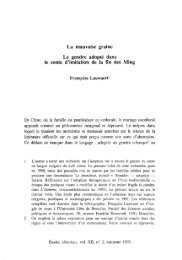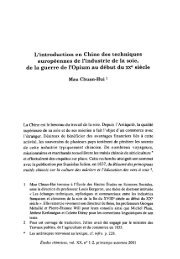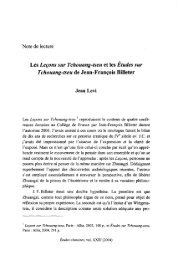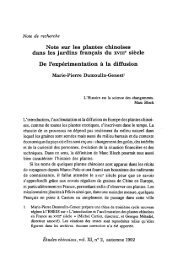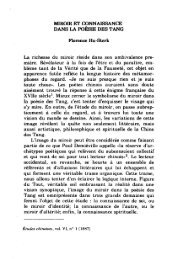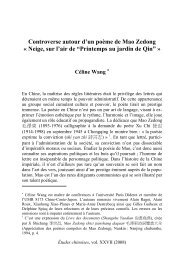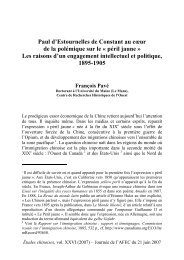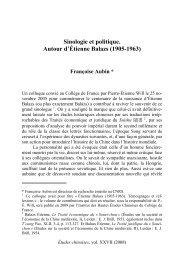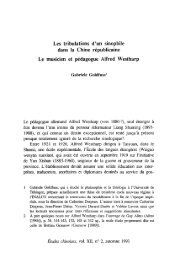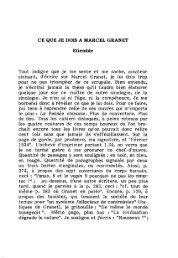Create successful ePaper yourself
Turn your PDF publications into a flip-book with our unique Google optimized e-Paper software.
Comptes rendus<br />
Jacques Gernet, La Raison des choses. Essai sur la philosophie de Wang<br />
Fuzhi (1619-1692), Paris : Gallimard (Bibliothèque de Philosophie), 2005.<br />
436 pages<br />
This is a very important book. And there is much more to it than its subtitle<br />
would seem to indicate. Certainly, we hâve hère a truly remarkable<br />
présentation of the philosophy of Wang Fuzhi, which the author modestly<br />
describes as an 'essay', but which is, in fact, a very substantial study and<br />
undoubtedly the best pièce of work to appear so far in a western language<br />
on this major seventeenth-century Chinese philosopher. In addition,<br />
however, in situating Wang in the overall context of Chinese intellectual<br />
history in a way that is compréhensible to any intelligent western reader,<br />
Jacques Gernet provides that reader with what amounts to an admirably<br />
cogent and cohérent introduction to the Chinese philosophical tradition as<br />
a whole. The resuit is a rare bridge between Chinese and European<br />
philosophical culture.<br />
Gernet has long argued against approaching Chinese culture,<br />
including history, art and religion as well as philosophy, as though it were<br />
based on the same prémisses as European culture. In this study too he<br />
draws attention to the fondamental différences between Hellenic-based<br />
philosophy and Chinese Systems of thought, which many western scholars<br />
hâve refused to dignify with the name 'philosophy'. He singles out key<br />
areas where there is a crucial différence, illuminating his discussion with a<br />
distillation of his cross-cultural érudition. The resuit is always limpidly<br />
clear and eminently readable. (Reading Gernet one inevitably remembers<br />
Boileau's famous dictum : "ce qui se conçoit bien s'énonce clairement et<br />
les mots pour le dire viennent aisément.")<br />
This is no mean feat, considering that when discussing Chinese philosophy<br />
in any language even the best sinologues (even Demiéville, even<br />
Graham) hâve always found themselves to some extent constrained by the<br />
sort of code to which one is reduced when translating Chinese philosophical<br />
terminology. As Gernet himself remarks, "plus que d'autres, les termes<br />
auxquels la tradition chinoise a donné une signification philosophique<br />
posent des questions redoutables." A given Chinese term invariably carries<br />
Etudes chinoises, vol. XXIV (2005)



